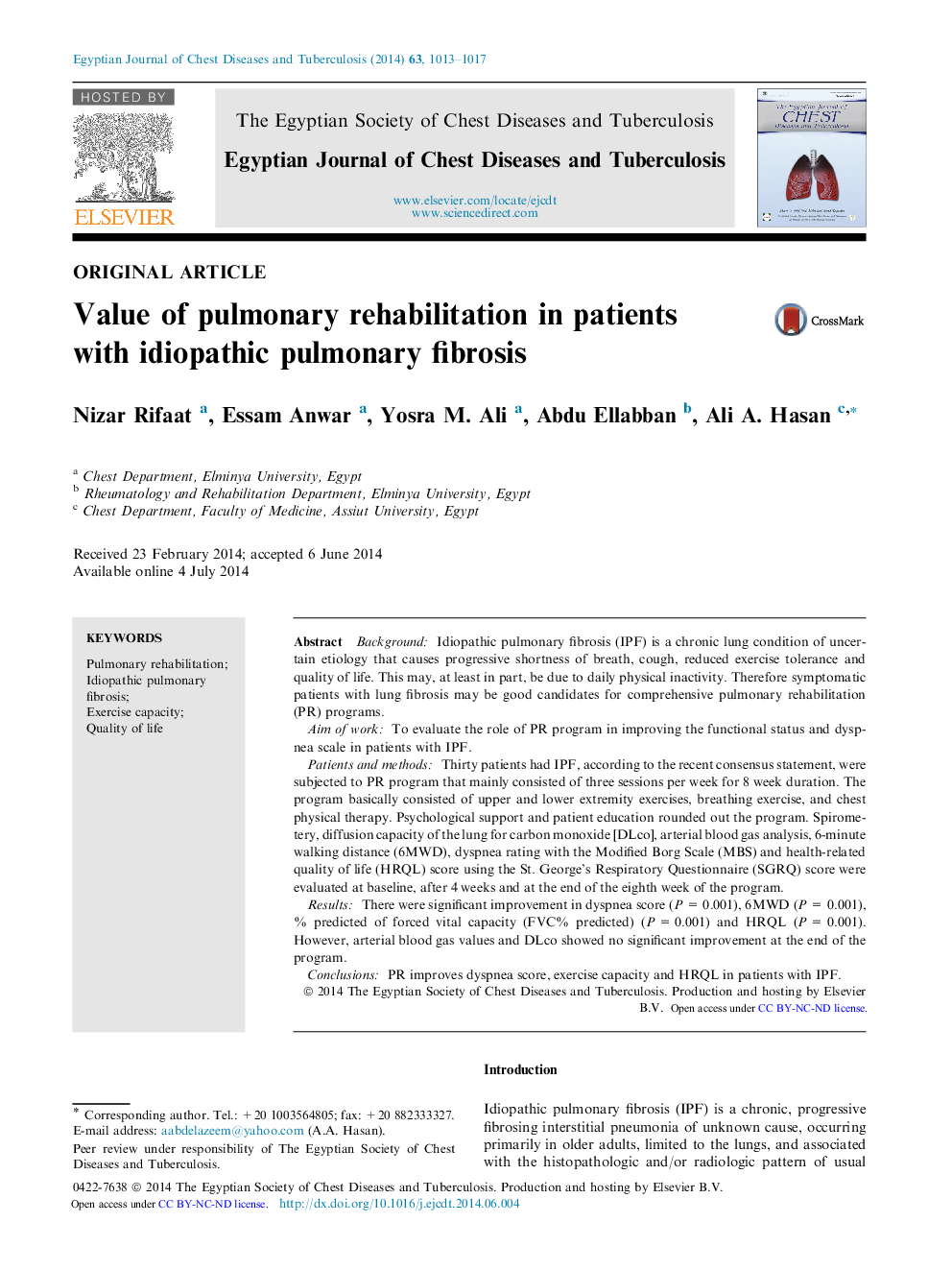| Article ID | Journal | Published Year | Pages | File Type |
|---|---|---|---|---|
| 3400242 | Egyptian Journal of Chest Diseases and Tuberculosis | 2014 | 5 Pages |
BackgroundIdiopathic pulmonary fibrosis (IPF) is a chronic lung condition of uncertain etiology that causes progressive shortness of breath, cough, reduced exercise tolerance and quality of life. This may, at least in part, be due to daily physical inactivity. Therefore symptomatic patients with lung fibrosis may be good candidates for comprehensive pulmonary rehabilitation (PR) programs.Aim of workTo evaluate the role of PR program in improving the functional status and dyspnea scale in patients with IPF.Patients and methodsThirty patients had IPF, according to the recent consensus statement, were subjected to PR program that mainly consisted of three sessions per week for 8 week duration. The program basically consisted of upper and lower extremity exercises, breathing exercise, and chest physical therapy. Psychological support and patient education rounded out the program. Spirometery, diffusion capacity of the lung for carbon monoxide [DLco], arterial blood gas analysis, 6-minute walking distance (6MWD), dyspnea rating with the Modified Borg Scale (MBS) and health-related quality of life (HRQL) score using the St. George’s Respiratory Questionnaire (SGRQ) score were evaluated at baseline, after 4 weeks and at the end of the eighth week of the program.ResultsThere were significant improvement in dyspnea score (P = 0.001), 6MWD (P = 0.001), % predicted of forced vital capacity (FVC% predicted) (P = 0.001) and HRQL (P = 0.001). However, arterial blood gas values and DLco showed no significant improvement at the end of the program.ConclusionsPR improves dyspnea score, exercise capacity and HRQL in patients with IPF.
